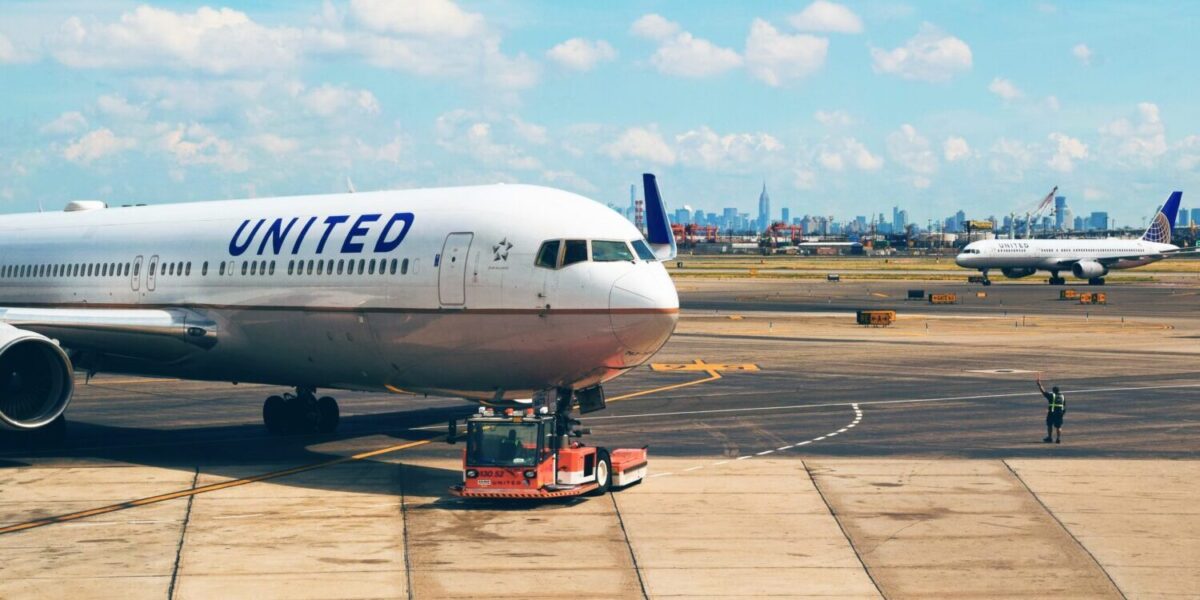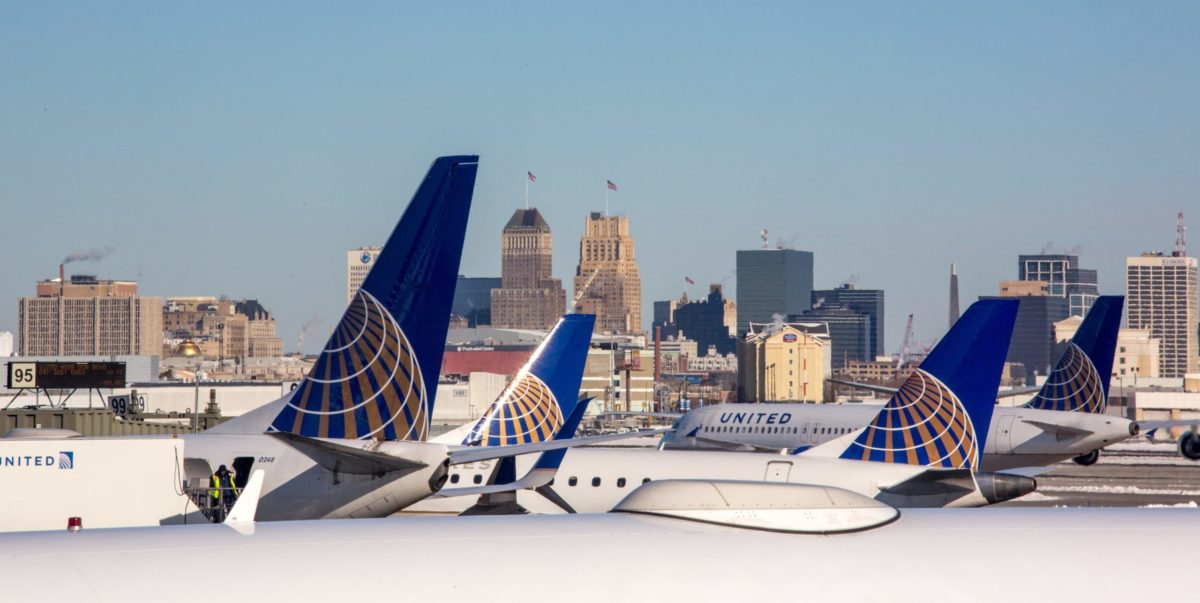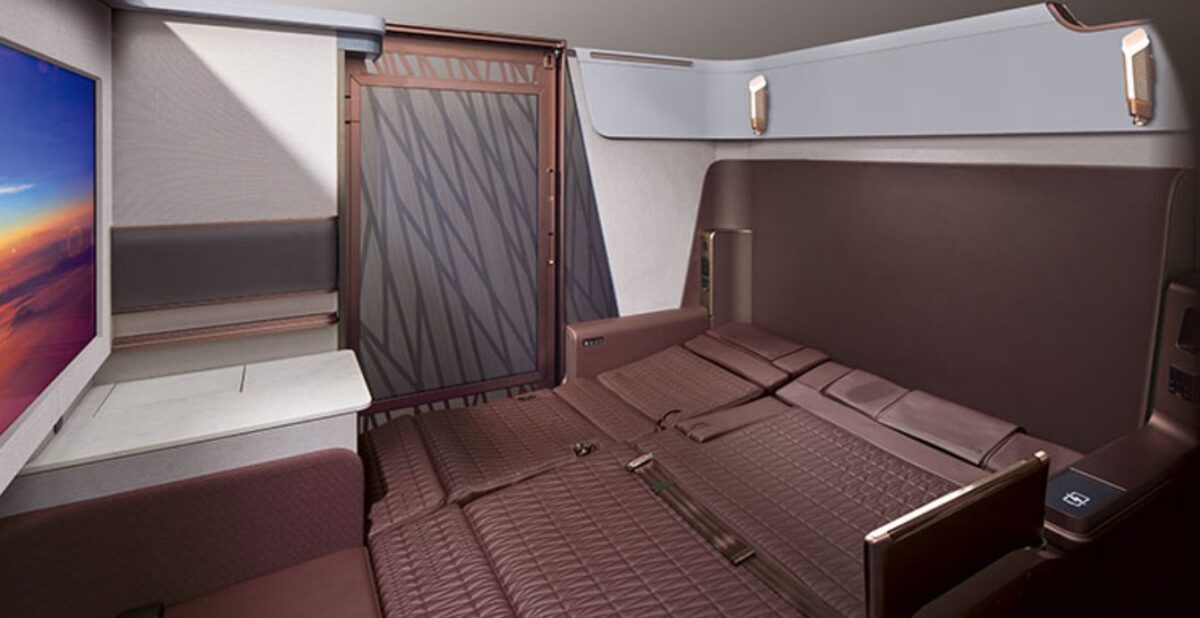Lengthy delays and surprise flight cancellations are frustrating travelers again this summer with storms regularly pummeling the East Coast. No airline is spared from bad weather, but one carrier and airport is paying the biggest price: United in Newark (EWR).
While many U.S. airlines struggled heading into the hectic Fourth of July holiday weekend as storms swept across the country, United was the worst … by far. The airline canceled nearly 4,000 flights in the week leading up to the holiday, according to historical data from FlightAware.com. United's critical Newark hub regularly topped the list for disruptions and has continued struggling to get flights on and off the ground on time.
It's been a one-two-three punch of bad weather, air traffic control constraints, and lingering staffing issues in what CEO Scott Kirby calls “the world's most congested airspace.” Kirby told investors Thursday that flights in and out of Newark have been moving more smoothly lately thanks to working more closely with the Federal Aviation Administration (FAA), helping the airline get things back on track after storms pass.
Still, the airline announced it's making some changes at Newark that could affect passengers, including:
- At an airport where it normally operates 435 flights a day, it'll cut that down to roughly 390 daily flights in August and perhaps beyond – a reduction that should relieve the stress at the airport but will mean travelers with tickets booked in and out of Newark next month could see schedule changes.
- They're specifically reducing their flights during peak travel hours, when flights tend to get backed up most.
- To keep problems contained when things start to go awry, United is reworking its schedule to focus on “out-and-back” flights – for example, flying from Newark to Boston (BOS) and straight back to Newark rather than over to Chicago-O'Hare (ORD).
- As part of its ongoing expansion at the brand new Terminal A, it'll soon open six more gates to keep flights and passengers moving.
- The airline said it'll invest more in crew scheduling resources and technology to ensure the airline has got staff where they're needed.

“Running a successful and efficient airline is critical and United is laser-focused on getting our customers to their destinations safely and on time,” United President Brett Hart said.
But the problems may extend beyond just this summer. One airline executive told investors that the airline expects to fly a reduced schedule in and out of Newark – and may do so next summer as well – until it can come up with a “creative solution” with the FAA.
That's the biggest piece of the puzzle, several United executives said on Thursday. Many airlines have faulted the FAA and its short-staffed air traffic control centers for their woes last summer and again this year – none louder than United.
A bill winding its way through Congress would reauthorize the FAA, providing additional resources to air traffic control centers while making a handful of other aviation-related changes like rolling back rules requiring airlines to display the final cost of airfare from the start or banning airlines from making no-notice changes to their loyalty programs. The House of Representatives passed its bill on Thursday morning. The Senate is working on a different proposal.
“It’s among the best investments that we could make for the traveling public and the U.S. economy right now,” Hart said.
Bottom Line
Help is on the way for United and its Newark hub, which has seen a resurgence of delays and cancellations this summer. But some of the fixes needed to keep planes moving on time in New Jersey will affect passengers, too – at least for now.




MY SON WAS STRANDED IN NJ FOR SIX DAYS!!!!! EVERY UNITED FLIGHT HE BOOKED FROM JUNE 26-JULY 1 WAS CANCELLED. HE WAS ORIGINALLY CONFIRMED FOR HIS RETURN TO SAN DIEGO AFTER ATTENDING A MEMORIAL SERVICE IN NJ. ON JUNE 26.
AFTER MANY UBERS BACK AND FORTH TO THE AIRPORT, EACH UNITED FLIGHT HE WAS CONFIRMED ON WAS CANCELLED.
LUCKILY, HE WAS ABLE TO COME BACK TO OUR HOME TO WORK REMOTELY, ETC AND DID NOT HAVE TO SLEEP ON THE FLOOR OR COTS LIKE HUNDREDS OF PEOPLE WERE DOING AROUND THE GATES AND FOOD COURT. UNSANITARY AND DISGUSTING!
THIS STARTED WAY BEFORE THE 4TH OF JULY HOLIDAY RUSH WHICH UNITED WAS BLAMING IT ON, AS WELL AS BAD WEATHER , AIR TRAFFIC CONTROLLERS, ETC.
AFTER SPEAKING TO A GOOD FRIEND IN A MANAGEMENT POSITION FOR UNITED, I WAS TOLD THE BIGGEST PROBLEM WAS RELATED TO EMPLOYEE CONTRACTS AND NEGOTIATIONS. ANOTHER FRIEND OF MINE, WHOSE DAUGHTER IS A FLIGHT ATTENDANT FOR UNITED CLAIMED THAT EMPLOYEES WERE CALLING OUT SICK AS A MEASURE TO MAKE UNITED END THE CONTRACT ISSUE.
IT ALL MAKES PERFECT SENSE BECAUSE IF THERE WAS A FLIGHT. GOING OUT IT WAS DELAYED
FOR HOURS WAITING FOR EMPLOYEES TO SHOW UP, THEN EVENTUALLY CANCELLED.
I WAS ON THE PHONE WITH UNITED LITERALLY ON HOLD FOR OVER 8 HOURS, BY CALLING 3 TIMES ON JUNE 30TH. SPEAKING TO OFF SHORE EMPLOYEES THAT YOU COULDN’T EVEN UNDERSTAND ….WHO COULDN’T HELP ANYWAY. ONE AGENT IN HOUSTON ACTUALLY BOOKED HIM ON A FLIGHT FOR JULY 1,2024!!!!!
WE FINALLY BOUGHT HIM A TICKET OUT OF PHILADELPHIA ON SATURDAY MORNING FOR $600 ON AMERICAN. WE DROVE 2.5 HOURS TO GET THERE, HOWEVER WE GOT INTO THE AIRPORT IN NO TIME, HE GOT TO THE GATE IN 5 MINUTES, NO DELAYS ON THE HOLIDAY WEEKEND OUT. OF PHILLY AND FINALLY GOT BACK TO SD.
WE SHOULD HAVE DONE THIS EARLIER IN THE WEEK, BUT IN GOOD FAITH WE THOUGHT UNITED WOULD BE ABLE TO GET THIER CONFIRMED PASSENGERS OUT.
UNITED THINKS GIVING A VOUCHER FOR 30,000 MILES IS ENOUGH COMPENSATION. I DON’T THINK SO. THIS ALSO AFFECTED HIS PREGNANT WIFE, WHO HAD TO PAY OUT OF NETWORK TO GET A TIME SENSITIVE PREGNANCY TEST HERE IN JERSEY. SHE ALSO MISSED ONE WEEK OF HER SUMMER SCHOOL TEACHING ASSIGNMENT.
THE CEO OF UNITED, HOWEVER , FLEW ON A PRIVATE JET TO GO WHERE HE NEEDED TO GO DURING THAT TIME PERIOD. THIS IS AN ABSOLUTE DISGRACE!!! NOT SURE I WILLL BE FLYING ON UNITED ANYMORE. THERE ARE PLENTY OF OTHER AIRLINES TO CHOOSE FROM!
why are you shouting?
Has this affected international travel as well?
We have plans to fly out of Newark in September to Edinburgh.
It has affected all flights, though long-haul international routes are often prioritized when things go wrong so I would say the odds of disruptions are smaller – though still not zero!
I was a flight last Saturday. Due to mechanical issues, we were delayed 3.5 hours. I contacted United and the agent promised 50,000 miles as a good will gesture. I received an email stating it will only be 30k . I called and the agents ( transferred many times) said they would honor the 50k. I received no emails or population of my account. Another call and the agent said to fill out the 30k email with a rebuttal . I received an email back saying I don’t qualify for anything but a $50.00 travel voucher or 2,500 miles. To top off my United nightmare. Yesterday we sat on the tarmac in PBI for about an hour due to thunderstorms. It was hotter than hell with no air. We get going and landing in EWR we had an aborted landing. We touched down and the pilot punched it and we were airborne again. One of the scariest things ever. My wife had a panic attack. it took her several hours to stop panicking . The pilot announced they overshot the point on the runway due to wind. There was no wind or weather.
Since you have such troubles into and out of Newark (EWR) why would you
Cut the flights into and out of Westchester (HPN). Our flight to Chicago from
Westchester (on August 11, 2023) was eliminated and we had to rebook a flight
from Newark. Now you state that may be cut also? When will this inconvenience
End? What is a passenger supposed to do?
Not really an FAA problem. Crew Scheduling is the first and biggest problem to fix. Continental operated out of EWR quite successfully, under the creative management of Gordon Bethune and Larry Kellner. Senior Executives at UA now are looking for other reasons to blame, including the FAA, except their own lack of concern and forethought over crew management and proper resourcing. These top management execs at United do not know how to take care of employees.
From a retired Continental pilot who flew in & out of EWR for sixteen years: Widen the airport by putting the Interstate underground (probably unfeasible due to the water level & worries about a crash sending flaming jet fuel into the tunnel) or move the airport 10 -20 miles west, or leave it where it is and build a third north-south runway to the west, taking out the Marriott and probably the Budweiser brewery.
Does UA plan to up-gauge any of its flights as part of these changes or will it be cutting total capacity with this plan? (I’d like to see Landline busses at peak evening times for some of short hauls when the RJs are massively late, with crews about to time out and high cancel rates anyway. With RJ pilot loss to mainline with higher hourly rates that may be the outcome, regardless.)
How about United serving JFK and LGA to relieve the congestion at EWR. Never could understand why they built up EWR so much.
Great news! I hope the plan works and the plane start moving.
As a Road Warrior for over 44 years, following my leaving NJ in 1972, I can say, Newark was historically the worst of the 3 main NY Metro Airports, and Philadelphia, because of proximity became a casualty as well. If one did not get out of Newark earl in the day, the summer afternoons became a gamble, heat, weather, whatever caused delays with equipment incoming and outgoing. United typically has the oldest fleet, which adds to their predicament, something Scott Kirby (AA in its evolution from America West, USAir to AA) has the skill set to master. Tangent, the FAA issue and Air Traffic Controller issues are no small part to the problem, which Biden and Buttigieg are exacerbating playing their DEI games, and bring forward candidates with no qualifications to head the FAA, or filling the open and needed Controller issues. One fix, may be, to not mandate retirement at 56, if the aptitude and physicality are there, why not 60 or 65? An inherent problem in NY Metro is La Guardian is land locked and most flights are connecting with Boston, Philadelphia, maybe Pittsburgh, DC, just to get people moving, but it only adds as delays at LaGuardia, impact transfers down-line. The Pandemic added to the chaos as less travel, meant Non-Stops were dropped, which plays right into the heart of the problem. The situation that precluded 4th of July weekend was a total disaster with a friend from Jupiter Florida joining 2 friends for a weekend wedding in Manhattan. Their Monday Night Jet Blue was cancelled, it was sufpggested they go to Boston with a 12 hour lay-over, they passed and were re-booked for Wednesday, Wednesday AM came, Cancelled, now 3 days in, Hotels that were $345 became $750, they trained to DC, (Flights and Trains booked), one of the husbands a Dr., drove from Jupiter to DC, to get them home by Friday night, 7 days after having left, with no help from the Airlines!